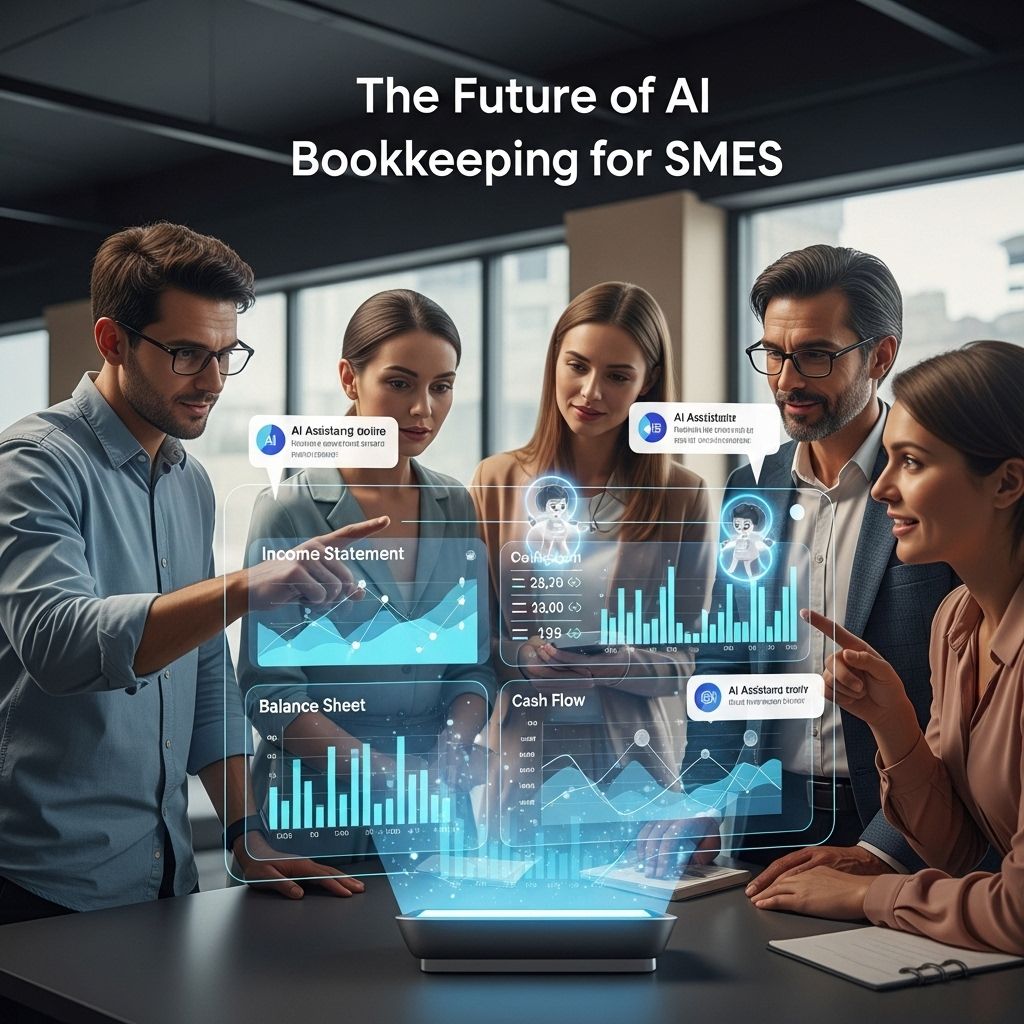As technology continues to revolutionize various industries, the field of bookkeeping is no exception. The advent of artificial intelligence (AI) has paved the way for smarter, more efficient methods of managing financial data. Small to medium-sized enterprises (SMEs) stand to benefit immensely from AI bookkeeping solutions, which can streamline operations, reduce costs, and enhance accuracy. In this article, we will explore the implications of AI in bookkeeping, the tools available for SMEs, and the future landscape of financial management.
Table of Contents
Understanding AI Bookkeeping
AI bookkeeping refers to the use of artificial intelligence technologies to automate and improve various bookkeeping tasks. These technologies can analyze vast amounts of financial data, recognize patterns, and make predictions based on historical information. For SMEs, AI bookkeeping can offer a range of benefits:
- Increased Efficiency: Automation of repetitive tasks such as data entry, invoice processing, and reconciliation allows accountants to focus on higher-value activities.
- Enhanced Accuracy: AI systems can significantly reduce human error, ensuring that financial records are precise and up-to-date.
- Cost Savings: Automating bookkeeping processes can lower operational costs, as fewer resources are needed for manual operations.
- Real-Time Reporting: AI-enabled tools can provide real-time insights into financial performance, helping SMEs make informed decisions quickly.
Key Features of AI Bookkeeping Tools
When selecting an AI bookkeeping solution for an SME, it’s essential to consider several key features that can enhance functionality and user experience. Below are some of the critical features that modern AI bookkeeping tools should offer:
1. Automated Data Entry
AI bookkeeping tools can extract data from documents, invoices, and receipts using optical character recognition (OCR) technology. This automation minimizes manual data entry efforts.
2. Intelligent Expense Tracking
With AI, businesses can categorize expenses automatically based on machine learning algorithms that learn from past transactions.
3. Predictive Analytics
AI systems can analyze historical financial data to forecast future trends and help businesses prepare for upcoming cash flow needs.
4. Seamless Integration
Modern AI bookkeeping solutions should easily integrate with other business software, such as customer relationship management (CRM) systems, payroll platforms, and e-commerce solutions.
5. Enhanced Security
Data security is a crucial consideration. AI tools often come with advanced security features that protect sensitive financial information from unauthorized access.
Popular AI Bookkeeping Solutions for SMEs
Several AI-driven bookkeeping solutions cater specifically to the needs of SMEs. Below is a table comparing some of the most popular options:
| Software | Key Features | Pricing |
|---|---|---|
| Xero | Automated invoicing, reconciliation, and reporting | From $12/month |
| QuickBooks Online | Expense tracking, tax calculations, and integrations | From $25/month |
| Zoho Books | Billing, inventory management, and client portals | From $9/month |
| FreshBooks | Time tracking, invoicing, and project management | From $15/month |
Challenges and Considerations
While the advantages of AI bookkeeping are substantial, SMEs should also be aware of certain challenges when adopting these technologies:
1. Initial Investment
Implementing an AI bookkeeping system can require a significant upfront investment. SMEs must weigh the long-term benefits against initial costs.
2. Training and Adaptation
Employees may need training to adapt to new systems and workflows. A change management strategy is crucial for a smooth transition.
3. Data Privacy Concerns
AI systems process sensitive financial data, making it essential to choose solutions that prioritize data security and comply with regulations.
Future Trends in AI Bookkeeping
The future of AI bookkeeping is poised for significant developments. Here are some emerging trends to watch:
- Enhanced Machine Learning: As AI systems continue to learn from vast datasets, their ability to predict financial outcomes and provide tailored insights will improve.
- Integration with Blockchain: The combination of AI and blockchain technology could revolutionize transactional transparency and security in financial management.
- Rise of Virtual Bookkeepers: As AI tools become more sophisticated, virtual bookkeeping assistants will become commonplace, offering SMEs a cost-effective solution.
- Personalization: Future AI bookkeeping tools will provide highly personalized recommendations based on individual business needs and behaviors.
Conclusion
As we move further into the 21st century, AI bookkeeping is set to transform the financial landscape for SMEs. By embracing the capabilities of artificial intelligence, businesses can not only enhance their bookkeeping processes but also gain a competitive edge in the market. The future is bright for those willing to adapt and leverage technology for smarter financial management.
FAQ
What is AI bookkeeping and how does it benefit SMEs?
AI bookkeeping uses artificial intelligence to automate financial tasks, providing small and medium enterprises (SMEs) with increased accuracy, efficiency, and cost savings in managing their finances.
How can AI bookkeeping improve the accuracy of financial records for SMEs?
AI bookkeeping minimizes human error by leveraging algorithms to process data, ensuring that financial records are consistently accurate and up-to-date.
What are the key features of AI bookkeeping solutions for SMEs?
Key features include automated data entry, real-time reporting, expense tracking, tax compliance, and integration with other financial tools, making bookkeeping easier for SMEs.
Is AI bookkeeping suitable for all types of SMEs?
Yes, AI bookkeeping is flexible and can be tailored to meet the specific needs of various SMEs, regardless of their industry or size.
What should SMEs consider when choosing an AI bookkeeping solution?
SMEs should evaluate factors such as ease of use, scalability, integration capabilities, customer support, and cost when selecting an AI bookkeeping solution.
How does AI bookkeeping contribute to strategic decision-making for SMEs?
By providing real-time insights and analytics, AI bookkeeping enables SMEs to make informed financial decisions, improve cash flow management, and strategically plan for growth.

